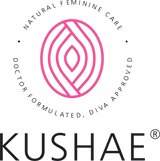This article is for informational purposes only. It is not, nor is it intended to be, a substitute for professional medical advice, diagnosis, or treatment and should never be relied upon for specific medical advice.
Vaginal yeast infection is a common problem that mainly affect people who are menstruating.
The most common symptoms are itching and irritation of the vulva and around the opening of the vagina. Vaginal yeast infections usually occur as infrequent episodes, but can recur frequently and may cause chronic persistent symptoms.
Yeast infections occur mainly in women who are menstruating (having monthly periods). They are less common in postmenopausal women who do not use estrogen-containing hormone therapy and they are rare in girls who have not yet started menstruating.
Got a yeast infection? Having recurring yeast infections? Here's a roundup of yeast infection treatment and yeast infection prevention options plus their pros and cons.
Various treatments exist for vaginal yeast infection, including over-the-counter and prescribed medications available online and in stores. Some medicines can ease symptoms and eliminate the infection and symptoms in as little as 1 to 2 days. You can treat current and recurring yeast infections in no time based on your needs and possible doctor recommendations. Continue reading to learn about the pros and cons of the latest yeast infection treatments and prevention.
Confused about which Kushae products to try first? Take the Kushae quiz to find a personalized product selection.
Yeast Infection Treatments
Medical treatment for yeast infections is often based on how often you get them and the seriousness of your symptoms. If you are prone to or have recurring yeast infections, your treatment will differ from the first time you have had the infection.
For uncomplicated cases, when a person experiences acute (infrequent) yeast infection with mild to moderate symptoms, treatment options may include:
- Short-course medication - In this treatment, you might take an antifungal medication for one to three days (up to a week) to clear up the vaginal yeast infection. Antifungal medications may be an over-the-counter option or prescribed by your doctor.
- Single-dose oral medication - A medical doctor may prescribe a single dose of fluconazole for those who are not pregnant.
For complicated cases, when the person has recurring (frequent) yeast infections or have severe symptoms, treatment may include:
- Long-course medication - is for those who have frequent yeast infections. This treatment includes taking daily antifungal medicine for up to 14 days. Then, the frequency of the medication will change to once a week for about six months.
- Multi-dose oral medication. A medical doctor might prescribe two or three doses of fluconazole for those who are not pregnant.
Pros and Cons of Yeast Infection Treatments
Vivjoa (oteseconazole)
Pros
- FDA approved
- Treat single & chronic yeast infection
- Suitable for people who are menopausal; are not planning on getting pregnant; have permanent infertility.
Cons
- Not suitable for pregnant or lactating people
- Not suitable for people of reproductive potential
- Not suitable for people with hypersensitivity to oteseconazole
- Side effects: nausea & headaches
- Very limited in usage and has a lot of risks
Monistat
Pros
- Treatment options include: 1 day, 3 days, & 7 days.
- Available online, in most pharmacies, & retail stores.
- Cost-effective
- Different usage options: internal suppositories & external creams.
- May include topical itch medications.
Cons
- Increased vaginal discharge
- Side effects may include itching, burning, and stinging.
- Faster treatment (i.e. 1 day pack) can cause vulvar irritation.
Kushae Vaginal Boric Acid Suppositories + Probiotics & Aloe
Pros
- Immediate relief within 1-2 days of use
- Fast and effective treatment for bacterial vaginosis and yeast infections
- Created by a certified OB/GYN
- Affordable prices & extra discount on subscription
- Cruelty-free - Not tested on animals
- Made with natural, organic ingredients
Cons
- No sex during treatment
- May need to wear a panty liner
FemiClear 2 Day Dose
Pros
- Comes with an anti-itch ointment (for external usage only)
- Relief within 2 days
- Made with organic ingredients
- Affordable
Cons
- Not suitable for vegans
- Not FDA approved
Fluconazole
Pros
- Fast & effective treatment
- Available online and in-store pharmacies
- Discount on subscription
Cons
- Expensive without subscription



















